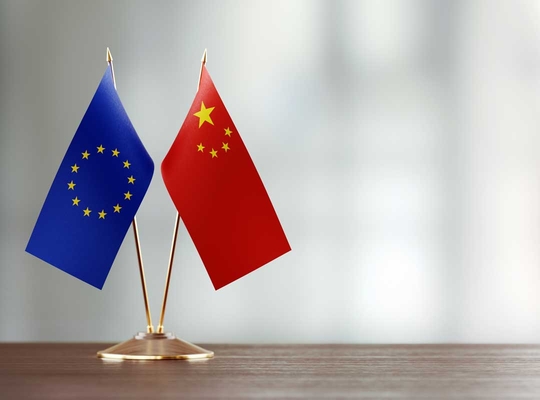You are here
The European Union must take a much stronger stand against China

Today, the European Parliament is debating the EU’s relationship with China. For Johan Van Overtveldt, Chair of the Budget Committee and coordinator in the Committee on Economic and Monetary Affairs (ECON), the time has come for the EU to look at China’s ambitions with open eyes—and with greater resolve.
“Last week, the Chinese Foreign Minister made it explicitly clear that China cannot afford a Russian defeat in Ukraine. A weakened or defeated Russia would shift the geopolitical spotlight back onto China. That statement says it all. Anyone still doubting China’s geopolitical ambitions is turning a blind eye to reality,” says Van Overtveldt.
“If we don’t act, we’ll get played. Again.”
China is shamelessly capitalizing on the current imbalance in global power dynamics. “While we’re obsessing over the U.S. and its president, China is quietly consolidating power,” Van Overtveldt continues. “Under the guise of cooperation, it continues building its economic and technological dominance—through a model based on protection, scaling up, and export.”
“What China has done with electric vehicles—shielding its domestic market, gaining scale advantages, then flooding the world with cheap exports—is exactly what it plans to do with artificial intelligence, the strategic sector of the future.”
AI relies on vast quantities of data. In China, data is being centralized on an unprecedented scale, with zero regard for privacy or civil rights. Van Overtveldt warns: “If we fail to act, we’ll be outmaneuvered again. Europe must learn from its past mistakes.”
Kris Van Dijck, Member of the European Parliament and of the Committee on International Trade (INTA), adds: “The dumping of cheap Chinese products must also be tackled far more aggressively. Heavily subsidized imports are an increasing threat to jobs within the EU. A study on European trade defence instruments—commissioned by the N-VA—confirmed what we already suspected: we urgently need faster anti-dumping procedures, shorter investigation times, quicker provisional measures, and easier access for SMEs. Without these reforms, our companies will suffer, and we risk losing valuable know-how and innovation.”
Geopolitical and technological blackmail
China is no stranger to geopolitical blackmail. During negotiations with the U.S., it used its dominant position in rare earth minerals as a powerful bargaining chip. It now turns out that companies wanting access to these resources are being forced to hand over sensitive information.
“This isn’t cooperation—it’s economic espionage under duress. For China, intellectual property theft isn’t collateral damage; it’s a central pillar of their strategy,” Van Dijck warns.
A call for European assertiveness
For Johan Van Overtveldt, the takeaway is clear: “We can no longer afford to be naïve. Economic resilience, technological independence, and geopolitical assertiveness are no longer lofty political phrases—they’re a matter of urgency.”
During her speech, Commission President Ursula von der Leyen echoed the N-VA delegation’s analysis. Unfortunately, aside from intensified diplomatic efforts, no concrete additional measures have been proposed.
“If China’s competitive edge is based on unfair practices, then countervailing duties must be used to restore a level playing field. And why not use the revenue from those duties to support Ukraine? That would send a clear signal to China: backing Russia comes at a price,” Van Overtveldt concludes.

